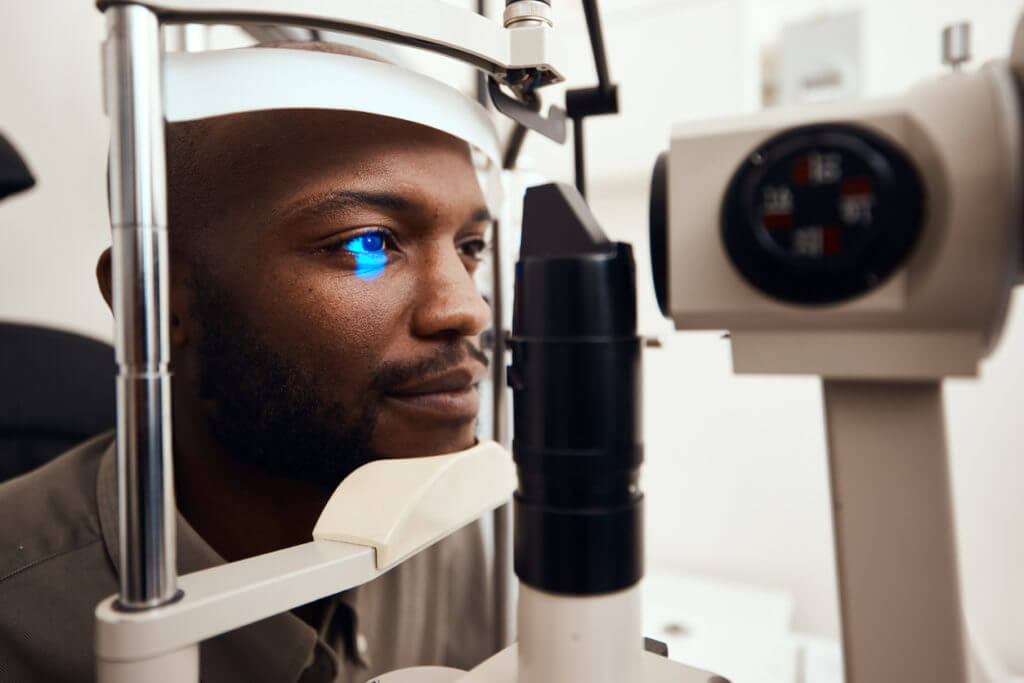Comprehending the Role of an Eye Doctor in Eye Care
The duty of an ophthalmologist in eye care is diverse, encompassing both the medical diagnosis and treatment of a vast range of eye conditions. These physician are not just proficient at performing complete eye evaluations yet also have the knowledge to recognize systemic health and wellness concerns that may materialize via visual signs and symptoms. Given the occurrence of eye problems such as glaucoma and cataracts, understanding the breadth of an ophthalmologist's duties becomes crucial. Yet, numerous people continue to be not aware of the critical elements of eye wellness management that might dramatically impact their high quality of life. What might be missing from this important discussion?

What Is an Ophthalmologist?
Although many individuals may perplex eye doctors with optometrists or opticians, an eye doctor is a medical physician specializing in the medical diagnosis and therapy of eye conditions and diseases. ophthalmologist in nabua. This field of expertise requires considerable education, consisting of completing a bachelor's level, followed by medical college, and a residency in ophthalmology
Ophthalmologists are outfitted to manage a variety of conditions, from usual refractive errors to complicated medical interventions. They have a comprehensive understanding of the composition and physiology of the eye, permitting them to diagnose conditions such as glaucoma, cataracts, and macular deterioration.
In enhancement to medical administration, several ophthalmologists do surgical procedures, such as cataract removal or laser treatments for refractive mistakes. This twin capability of offering both clinical and medical treatment distinguishes them from other eye treatment specialists.

Key Duties of Eye Doctors
The main responsibilities of ophthalmologists incorporate a large array of jobs vital for maintaining and improving eye health. They carry out comprehensive eye exams to evaluate aesthetic acuity and identify numerous ocular problems, utilizing sophisticated analysis tools and methods. This consists of translating imaging researches and carrying out specialized examinations to evaluate the structure and feature of the eye.
Eye doctors are likewise in charge of prescribing restorative lenses, drugs, and non-surgical treatments to manage eye problems properly. In cases needing medical treatment, they perform a range of treatments, varying from laser treatments to complex surgical treatments intended at correcting refractive errors or attending to extra severe ocular illness.
Individual education and learning is another crucial element of their function. Eye doctors educate people about preventative steps, treatment choices, and prospective dangers connected with eye wellness. They additionally team up with various other medical care specialists to make certain comprehensive look after patients with systemic diseases that might influence vision.
Moreover, they remain informed of the most recent advancements in ophthalmology through continual education and learning and study, guaranteeing they supply one of the most effective, evidence-based care. Via these diverse duties, eye doctors play an essential function in protecting and improving the vision and overall eye health of their patients.
Common Eye Issues Treated
Ophthalmologists often come across a variety of common eye problems that need their know-how for efficient management and therapy. One widespread condition is refractive errors, that include myopia, hyperopia, and astigmatism. These errors can usually be remedied with glasses, get in touch with lenses, or refractive surgery.
One more substantial problem is cataracts, characterized by the clouding of the eye's lens, resulting in blurred vision. Surgical treatment is typically required to eliminate the cataract and bring back quality. Glaucoma, a other leading reason for blindness, involves enhanced intraocular pressure, requiring normal surveillance and possible medical or medicinal treatment to preserve vision.
Additionally, age-related macular degeneration (AMD) affects the central part of the retina, affecting in-depth vision. Administration might consist of way of life adjustments and, sometimes, laser treatment or shots. Diabetic retinopathy, a difficulty of diabetes mellitus, can bring about vision loss if left unattended; mindful surveillance and prompt treatment are vital.
The Value of Routine Eye Examinations
Routine eye exams play an important function in maintaining overall eye health and detecting possible troubles early. Lots of eye conditions, such as glaucoma, macular degeneration, and diabetic person retinopathy, can create without obvious signs until substantial damages has occurred. Regular assessments make it possible for eye doctors to recognize these issues at their start, enabling prompt intervention that can stop vision loss.
Throughout an eye exam, an eye doctor reviews visual skill, assesses the health and wellness of the eye's inner structures, and look for any irregularities. These assessments are important not only for diagnosing eye-related concerns but likewise for determining systemic wellness problems that might materialize via eye symptoms, such as high blood pressure or diabetes.
The frequency of eye tests can differ based on age, danger factors, and existing health and wellness conditions. Inevitably, prioritizing eye exams fosters positive management of eye wellness, making certain that any potential issues are resolved promptly, therefore preserving vision and boosting quality of life.
Exactly How to Choose an Eye Doctor
Choosing an eye doctor is a critical choice that can considerably impact your eye health and overall wellness. When selecting an eye doctor, consider their certifications, experience, and areas of expertise. ophthalmologist in nabua. Ensure they are board-certified and have finished the essential training in ophthalmology, which normally official site includes a clinical degree and several years of residency
Recommendations from your primary care doctor or relied on good friends can give valuable insights right into prospective candidates. In addition, researching on-line evaluations and patient testimonials can aid evaluate the eye doctor's online reputation within the area. Examine the ophthalmologist's experience with certain problems or treatments pertinent to your demands, such as cataract surgery, glaucoma administration, or pediatric eye treatment.
Area and accessibility are likewise essential factors; select an eye doctor whose workplace is comfortably located and uses adaptable hours. Eventually, selecting an ophthalmologist who aligns with your medical care go to my blog needs and personal convenience can foster a favorable lasting partnership concentrated on preserving your eye health and wellness.
Final Thought
To conclude, ophthalmologists serve a crucial feature in eye care through their comprehensive training and competence. By detecting and dealing with a wide selection of eye problems, these medical experts considerably add to the preservation of aesthetic wellness. Normal eye evaluations are essential for early discovery of possible problems, thereby boosting general well-being. Choosing a qualified eye doctor is vital for getting appropriate treatment and maintaining optimum eye health and wellness throughout one's life.